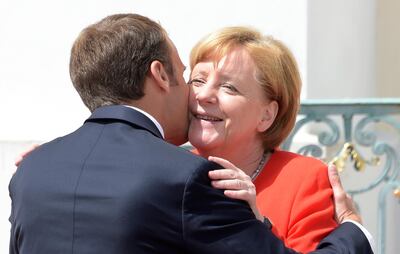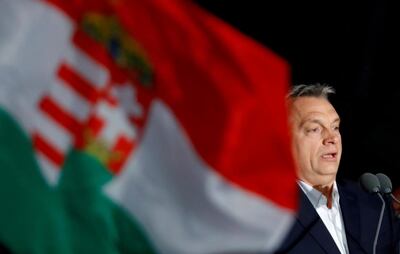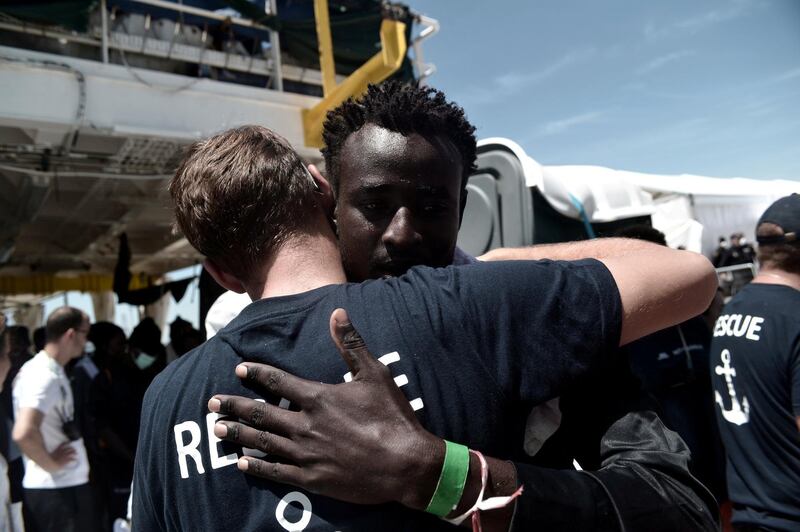European Union leaders are preparing to meet in Brussels next week to reach a solution to the bloc's most contested issue, migration.
European Council President Donald Tusk has urged the 28 leaders of EU member states to take control of the issue and make difficult decisions when they meet at the European Council summit.
The most recent migration crisis began in 2015 when a record 1.33 million people applied for asylum in the EU, many of whom had made the treacherous journey across the Mediterranean fleeing conflict and poverty in their homelands.
____________
World Refugee Day:
UN refugee agency: Record 68.5 million displaced in 2017
Eman's story: Fleeing violence, Rohingya find scant respite in Bangladesh
[ Omar’s story: Syrian refugee works to heal wounds of Iraq's displaced ]
____________
Since 2016, numbers of asylum claims have fallen sharply, with a 44 per cent reduction in 2017 in applications from the previous year. Figures for the first four months of 2018 show the downward trend has continued. The fall is partly due to agreements made between the EU and non-EU countries such as Libya and Turkey, allowing some migrants to be returned to them.
But while numbers have fallen, thousands of asylum applications are still to be processed. Migration remains at the forefront of European politics, shown most recently in the row over the docking of the Aquarius rescue ship and German Chancellor Angela Merkel’s struggles to hold together her coalition government, which has been divided over asylum policy.
Mrs Merkel, who announced an open-door policy for Syrian refugees in 2015, is facing a backlash from her Interior Minister Horst Seehofer who wants to see tighter border controls. Mr Seehofer, from Mrs Merkel’s coalition partner the Christian Social Union, has threatened to resign if a solution is not found, a move which would in turn bring down the government. He has, however, given her until the summit to find such a solution.

Mrs Merkel fears that if Germany reverses its suspension of the Dublin regulations, which state that a country where a migrant entered must deal with the claim, frontline countries like Greece and Italy will be overwhelmed. In the high stakes summit, she seeks an EU-wide deal which would see the responsibility of handling asylum seekers spread more evenly throughout the bloc.
Her concern is shared by charities, who believe the Dublin regulations are not suitable for today’s migration crisis.
“There needs to be a united European approach in terms of distribution and where people end up,” said Maddy Allen, who works as a Field Manager in Calais for charity Help Refugees.
"With increased land arrivals from Turkey, the majority of people arrive in Greece which has a struggling infrastructure.”
But with every country in the EU wielding a power of veto reaching a consensus will be difficult. Several eastern European countries such as Poland and Hungary which, since 2015, have increasingly backed nationalist, anti-migrant policies, refuse any mandatory redistribution of asylum seekers.

On the opposing side countries such as Italy will be pushing for such a redistribution, given that the country is an entry point for EU arrivals. Since 2015, Italian politics has faced turmoil as anti-EU populists and anti-migrant parties have also surged in support. The new populist government followed through on its election promises last week by refusing to allow a nongovernmental rescue ship to dock on its shores.
In Austria, a coalition of right-wing parties led by Chancellor Sebastian Kurz- elected in 2017- favours sending EU border patrol guards to Northern Africa to prevent migrants from travelling across the Mediterranean.
Mrs Merkel has some liberal allies, namely the new centre-left Spanish Prime Minister Pedro Sánchez who allowed the Aquarius to dock in Valencia and French President Emmanuel Macron, who said Rome had acted with “cynicism and irresponsibility” for shunning the ship. However, both western European leaders will arrive at the summit wary of nationalist sentiments in their own countries.
_______________
Read more:
UN says refugee crisis hits 'five year high'
Prolific migrant smuggler arrested in Greece
WATCH: Sightline with Tim Marshall on Europe's migrant crisis
_______________
Refugee charities have appealed to politicians from all member states to fix the “broken system” that exists.
Calling for quotas to ensure responsibility is shared out fairly between member states, Marta Welander, Executive Director of Refugee Rights Europe, said the summit offered an “historic opportunity” to reform existing rules on asylum.
"We want to see a fairer system, and one which upholds the human rights of displaced people fleeing war and conflict, violence and persecution and protracted crises," she told The National.







